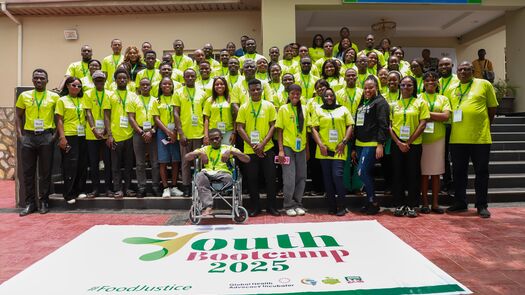February 19, 2026

In June 2025, the Vietnamese Government took an important step toward protecting public health with the passage of its first tax on sugar-sweetened beverages (SSBs) through the amended Excise Tax Law. Behind this policy advancement were the determined efforts of a coalition of local partners—including HealthBridge Foundation of Canada (HB), UNICEF Vietnam and the World Health Organization (WHO) Vietnam—who led a sophisticated, multi-year effort to ensure that public health voices were heard.
This step forward is the result of extensive efforts to make the case for the tax based on the latest evidence since discussions began in December 2022. Additionally, strong industry interference mounted through many channels and narratives such as questioning the scientific basis, fairness and potential economic effects of the tax, posed a serious hurdle.
To advance the policy agenda, local partners deepened their engagement with high-level policymakers by organizing workshops, providing informative materials and sharing updated tax impact models that highlighted the long-term health and economic benefits of stronger taxation. They also worked closely with the Ministry of Health (MOH) to ensure they were equipped with the tools and support needed to participate effectively in parliamentary debates.
Recognizing the power of public opinion, local partners led a dynamic communications effort to build awareness and counter misinformation. Their efforts resulted in several media products across print, television and digital platforms. HB also organized journalism workshops to strengthen reporters’ understanding of the health risks associated with sugary beverages and the benefits of taxation. These initiatives laid the groundwork for more informed, supportive coverage in both traditional and social media.
Their efforts were supported by a diverse coalition—including the National Institute of Nutrition (NIN), Health Strategy and Policy Institute (HSPI) and the Vietnam Association for Protection of Child Rights—which together presented a unified front. Throughout the campaign, the Global Health Advocacy Incubator (GHAI) shared evidence and best practices from other countries and offered strategic guidance on media and digital advocacy.
The amended Excise Tax Law includes an ad valorem tax of 8 percent on SSBs starting in 2027, increasing to 10 percent in 2028. This marks an important first step in Vietnam’s effort to reduce diet-related noncommunicable diseases, which account for over 80 percent of total deaths in the country. It’s also a recognition by the government of Vietnam about the health harms of SSBs.
Focus now shifts to the Excise Tax Law’s effective implementation in 2027 and evaluating its impact. Further work will also be continued to advance stronger tax rates and design to make a more effective impact on reduction of SSB consumption as well as its related diseases.
This SSB tax is a vital instrument in Vietnam's broader commitment to reducing the burden of NCDs and fostering a healthier nation. We commend the progress made so far and recognize the effort behind it, acknowledging that further steps to strengthen the SSB tax will be essential to fully achieve a lasting and comprehensive health impact. We extend our congratulations to the government of Vietnam, confident that with sustained commitment, even more can be accomplished.



